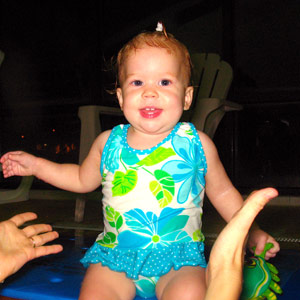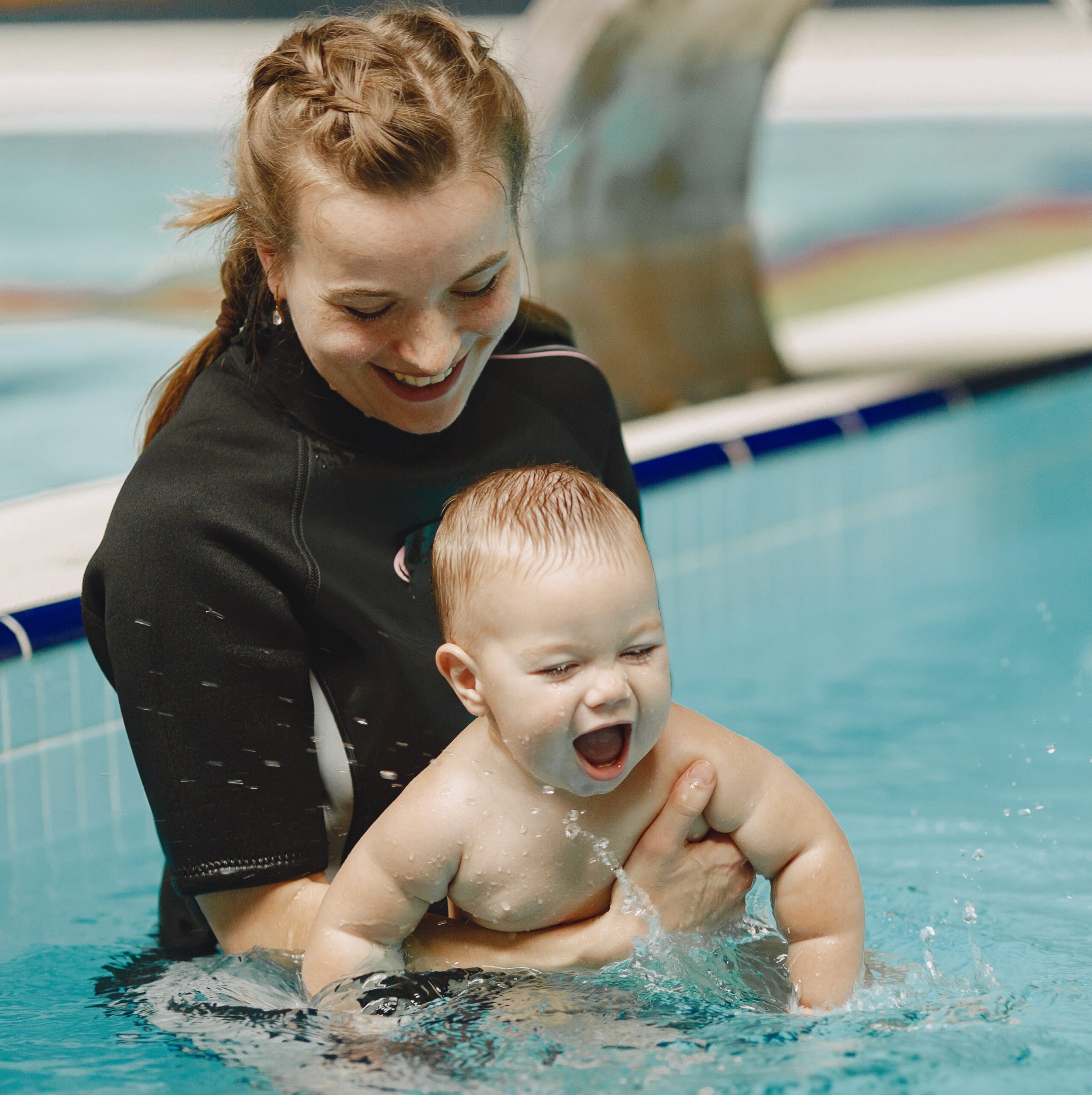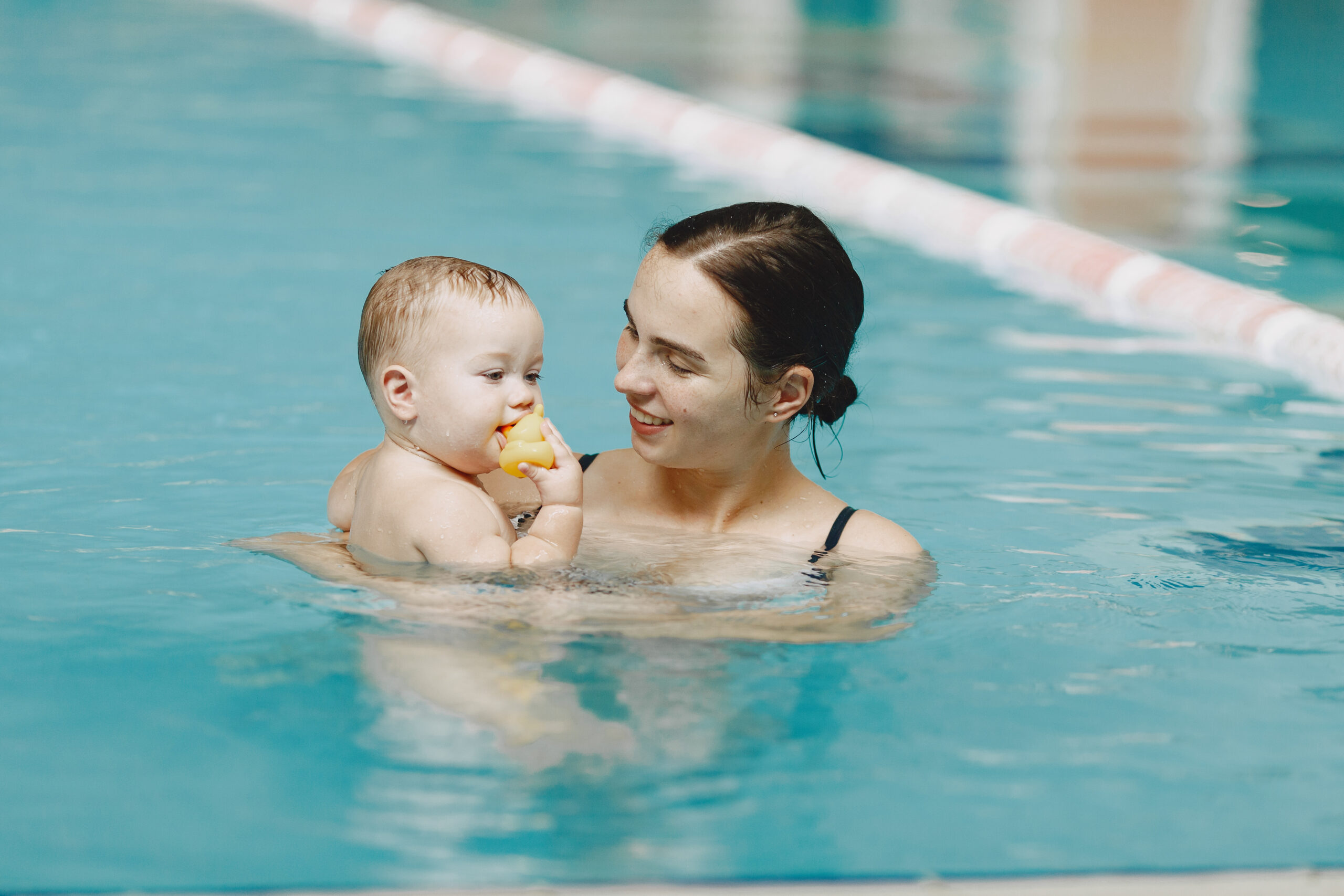The purpose of the H2FLOW Baby Program is to develop in very young children (6 months to 36 months) a high comfort level in the water—while at the same time educating parents about water safety and drowning prevention. This course does not teach children to become accomplished swimmers or survive in the water at this age; however, it does provide a confidence-building, fun, loving experience as a foundation for a lifetime of aquatic learning.
Private (1:1)
Parents can opt to get in with their baby if they prefer.
10 minutes per class
$97 per month
Cloth reusable swim diapers are REQUIRED. They are for sale at the pool.
If children have started early enough and are consistent with their lessons, when they graduate our H2FLOW Baby program they should be comfortable going under water for 5 seconds or more and will have been introduced to back floats and rollovers.
Comfort in the water comes from trust, experience, and loving encouragement. It is important for children to become comfortable in the water to create excitement and willingness to learn and participate. Children can begin to become comfortable in the water as early as six months of age. The earlier this process begins, the more readily a child will accept the water.


